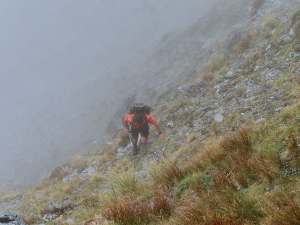New Zealand needs to look closely at where it puts its science funding, says Massey food scientist Professor Paul Moughan.
"I don't think we can be all things to all people and I think we have to take a very close look at where we are going to put our [research funding] resources. We are a very, very small country, population wise," he told a recent Westpac-Massey forum in Auckland.
"We are only going to make an impact if we focus in the right areas. If [we try] to do everything and give everything to everybody we are not going to make it and we need to choose those areas.
"If some of the [Government] ministers were here they would be saying we should be going into hi-tech manufacturing -- our future lies in transistor radios, computers, films, etc. Well I don't share that view, I think it is daft. We produce $30 billion of food. A 10% improvement is $3b overnight; that's a helluva lot of IT startups. So think it through."
He claims if New Zealand had 10-20 more products like Fonterra's bone health product Anlene – annual sales heading for $1 billion – we could make NZ a rich country again. Our OECD economic rankings would go back to the 1950s where at one stage we led.
Moughan says we need to look at our basics, our core business and our comparative advantage.
"I would like to see an examination of conscience: are we doing the right types of work, the types of area we should be working in, how do food companies see it, how does the production sector see it?
"Get the right gameplan and then resource it well, fund it well, focus your money. And focus it on good people and good teams and stop the nonsense in this country [that says] everybody has to be given an equal share. I don't think that is the way to make progress. To get smart we've got to focus our resources and know what we stand for; we've got a lot to be proud of."
Fonterra is developing a lot of other products similar to Anlene. Zespri kiwifruit are sold on the overseas markets on the basis of sustainable health which is underpinned by a lot of science done by the Riddet Institute, which Moughan co-heads. "Zespri kiwifruit gets a 30% premium over every other kiwifruit sold on the market internationally."
Moughan says these stories don't get told, yet they are vital to the country's future -- our children and grandchildren. "We don't celebrate this stuff enough so people don't understand."
Former Prime Minister David Lange said agriculture was a sunset industry.
"I reckon an industry that is growing 3% year-on-year is hardly sunset. When you look at the future marketplace it has to be good, and when you look at NZ's ability to take the high ground for premium foods, take into account provenance and all the rest, I don't see any reason to be pessimistic."
He says foreign students will pour in to get educated in agriculture and food and it will give a lot of Kiwis jobs – including highly skilled and highly trained jobs.










